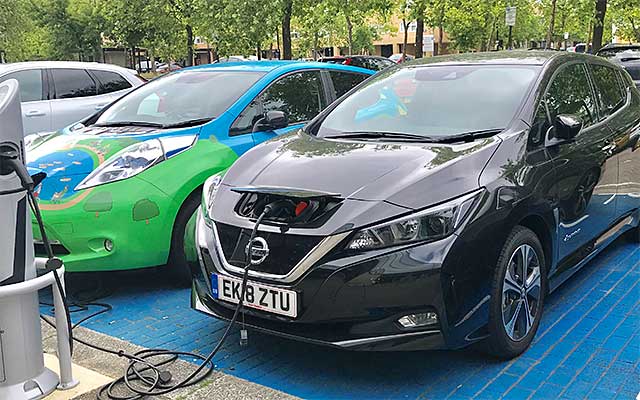19 October 2018
The Government’s 2040 targets for zero emission cars are vague and unambitious, according to the Business, Energy and Industrial Strategy Committee in a report published today.
The Electric vehicles: driving the transition report recommends the Government brings forward a clear, precise target for new sales of cars and vans to be zero emission by 2032. The AA calls this timescale ‘well-intentioned but impractical’.
Whilst the AA agrees with the Committee that more incentives and infrastructure are required it does not believe the UK will be ready or willing to ban the sale of new petrol and diesel cars in just 14 years’ time.
“The Government’s current AC/DC attitude towards electric vehicles has been sending mixed messages: one minute encouraging car owners to make the switch, the next cutting the grants for greener cars,” says Edmund King, the AA’s president.
The Government’s current AC/DC attitude towards electric vehicles has been sending mixed messages: one minute encouraging car owners to make the switch, the next cutting the grants for greener cars,
“The AA welcomes the Committee’s view that cutting the grant is a retrograde step, and also for highlighting the range anxiety and charging concerns that still exist. These should not be barriers to the electric car revolution in the longer run.

Too many barriers
“Most drivers still see too many barriers to their early adoption of electric vehicles (EVs) despite the Government’s commitment to phase out the sale of new petrol and diesel cars even by 2040.
“The AA argues that many of these perceptions are myths rather than reality and hence broader concerted efforts are required to convince the public of the wide benefits of EVs but that is unlikely to be achieved by 2032.”
The findings of an AA-Populus poll of 10,293 drivers in June 2018 showed that:
- The vast majority of respondents (85%) say that there aren’t enough public charging points for EVs
- Three quarters (76%) agree that EVs can’t go far enough on a single charge
- 76% think EVs are too expensive
- Two thirds (67%) think EVs take too long to charge
- 67% think there isn’t enough choice of Electric Vehicle models
A more concerted effort
Edmund King added: “In order to meet the Government’s 'Road to Zero' targets a concerted effort is required to demonstrate the benefits of EVs and dispel some of the myths. The range, charging speed and charging point infrastructure are all on the increase. “There needs to be a more concerted effort to sell the benefits of electric vehicles.
“Drivers used to filling up when their tank’s nearly empty will need to change re-fuelling habits as most drivers with EVs expect to charge at home, overnight, and then at their destination.
“Plug-in hybrids shouldn’t be under-estimated as a positive stepping-stone to full EVs so cutting the grant is unhelpful. Ultimately outstanding, affordable, stylish EVs with a decent range will sell themselves. Massive savings can already be made on running and service costs, as well as, the tax benefits.
We need a firm commitment to the charging infrastructure, as well as, future-proofing houses, offices and strategic roads
“The EV revolution hasn’t perhaps taken off as quickly as we would have liked but we need a firm commitment to the charging infrastructure, as well as, future-proofing houses, offices and strategic roads. There are now some exciting EVs on the market and many new and exhilarating models on the horizon. The younger generation in particular are ready to embrace the electric revolution.”
